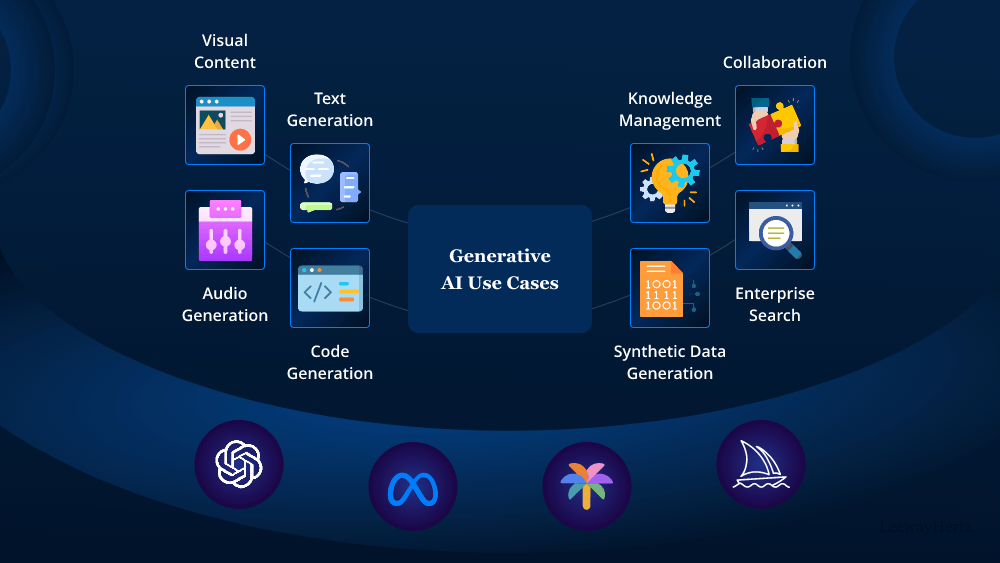Introduction
In the fast-moving world of digital marketing, content is still king — but how it’s created is rapidly evolving. With the rise of generative AI tools like ChatGPT, marketers now have the power to create high-quality content faster, smarter, and more strategically than ever before. This transformation is not just a trend — it’s a revolution reshaping how brands engage with their audiences.
From blog writing to personalized campaigns, ChatGPT and similar tools are unlocking new possibilities that were unimaginable a few years ago. Here’s how generative AI is rewriting the rules of content marketing.
—
What Is Generative AI and ChatGPT?
Generative AI refers to algorithms capable of producing text, images, videos, or other media formats based on data they’ve been trained on. Unlike traditional AI that classifies or predicts, generative models create.
At the forefront is ChatGPT, a conversational AI developed by OpenAI. It can:
Draft articles
Create ad copy
Answer customer queries
Brainstorm marketing ideas
And all of it in seconds.
But it’s not alone — platforms like Copy.ai, Jasper, and Writesonic also contribute to the ecosystem.
—
7 Powerful Ways ChatGPT and Generative AI Are Transforming Content Marketing
1. Faster Content Creation at Scale
Time is money — and with ChatGPT, content production that once took hours now takes minutes. Marketers can:
Generate blog drafts instantly
Write emails, captions, and ad copy
Build landing page content
This speed allows brands to scale campaigns and keep up with fast-moving trends without compromising quality.
—
2. Hyper-Personalized Messaging
Personalization drives conversion. ChatGPT enables marketers to create content tailored to:
Specific demographics
Buyer behavior
Customer journey stages
This means dynamic landing pages, targeted emails, and even chatbot responses feel more human and relevant.
—
3. SEO Optimization Made Easy
ChatGPT can help create SEO-friendly content when used with tools like RankMath or SurferSEO. It assists in:
Keyword placement
Meta descriptions
FAQ generation
Title optimization
Instead of guessing, marketers can now rely on AI to align content with what users and search engines want.
—
4. Smarter Content Ideation & Research
Writer’s block? Not anymore. ChatGPT can:
Suggest blog topics
Outline content structures
Provide bullet points for each section
Even generate title variations
This is especially useful for solo marketers or content teams managing multiple brands.
—
5. Multilingual Content Creation
Expanding globally? ChatGPT supports multiple languages, allowing brands to:
Reach non-English speaking markets
Translate blogs or product descriptions
Maintain tone and intent across cultures
It’s localization without the high cost of hiring translators.
—
6. Boosting Engagement With Interactive Content
Generative AI can help develop:
Chatbot scripts
Personalized quizzes
Conversational experiences
Email responses based on user behavior
This level of automation makes your brand more responsive and user-focused.
—
7. Automating Social Media Content
Social media thrives on speed and creativity. With ChatGPT, you can:
Generate engaging captions
Create post ideas for the week
Repurpose blogs into tweets or reels
Combined with tools like Hootsuite or Buffer, this makes your social media strategy seamless and consistent.
—
Case Study: Real Brands Using Generative AI
HubSpot uses ChatGPT to brainstorm content ideas for marketing teams.
Sephora uses AI-powered chatbots to guide customers to the right products.
The Washington Post has used generative AI for real-time sports reporting.
These aren’t science fiction — they’re today’s marketing playbooks in action.
—
Challenges and Ethical Considerations
While powerful, generative AI is not without risks:
Bias in training data may reflect in content
Plagiarism or misinformation can occur
Over-automation may damage brand authenticity
Human review is still essential. AI should assist, not replace, thoughtful content creation.
—
The Future of Content Marketing with AI
Looking ahead, we can expect:
More AI-human collaboration in content workflows
Integration of AI into tools like Canva, Photoshop, and CRMs
Better tracking of content performance via predictive analytics
AI won’t replace writers — it will empower them to focus on creativity, strategy, and storytelling.
—
Conclusion
ChatGPT and generative AI are no longer just tech buzzwords — they’re reshaping the future of content marketing. From automation to personalization, these tools are helping brands save time, scale faster, and connect deeper with audiences.
Those who embrace the shift early will be the ones leading tomorrow’s digital storytelling.
—
